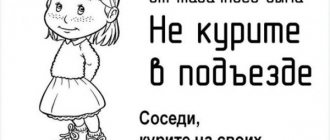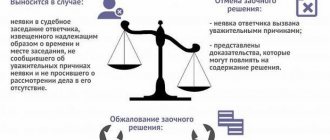Product information law
And the law obliges the seller (manufacturer and performer) that information about the product must be provided in full.
Federal Law of the Russian Federation dated 02/07/1992 N 2300-1 “On the Protection of Consumer Rights” (hereinafter referred to as the Law “On the Protection of Consumer Rights”) is the main law regulating the relationship between the consumer and the manufacturer, performer, seller when selling goods (performing work, providing services ).
This law establishes consumer rights to:
- purchase of goods, works, services;
- obtaining information about goods (works, services) and their manufacturers;
- implementation of rights and protection of interests, etc.
According to paragraph 1 of Art. 8 of the Law “On the Protection of Consumer Rights”, the consumer has the right to demand from the seller (manufacturer, performer) the necessary and reliable information about the goods, works and services he sells.
Corresponding to this right is the obligation of the seller (manufacturer, performer) to promptly provide the consumer with the necessary and reliable information about goods (work, services) (Clause 1, Article 10 of the Law “On Protection of Consumer Rights”).
Case of providing incorrect information about the conditions of a tourist route
How I achieved respect for the rights of my clients
(on the application of the Law “On Protection of Consumer Rights”) This time I represented the interests of my clients in the Tverskoy District Court of Moscow.
A husband and wife, retirees (61 and 63 years old), decided to relax and improve their health in Hungary. We purchased 2 vouchers for rest and treatment. After resting, they had to contact a lawyer. I studied the documents presented by my clients (those that were available), formed a legal position on this case and filed a statement of claim in court.
From the case materials:
“The defendant (travel agency) did not enter into an agreement with them for the sale of a tourist product, did not issue a voucher, provided inadequate information about the trip: he explained that they would go by train No. 15 to Hungary to the Haibúszoboszló station, then by taxi to the hotel, and would return at that same order. They are pensioners and it is very important for them how they will get to the hotel and back home. They were given travel tickets on the day of departure. They were dropped off from the train at the station. Debrecen. The conductor explained that the train to the station. Haibusoboszlo never stops.”
“The return route was even worse and more dangerous, in addition, they were sold tickets to the top shelves: the second and third. The defendant was advised that they needed the lower shelves.”
Two pensioners get off the train in a foreign country. How to go further is unknown. We reached the station. They speak neither Hungarian nor English. Nobody speaks Russian. They tried to explain at different ticket offices that they needed to get to the station. Haibusoboslo, they tried to find out how long it would take and how much the ticket cost, and where this city was located. But it’s hard for old people to do this. The ordeal at the station lasted 4 hours. And if by chance they had not met a Russian woman living in Hungary, who helped them buy tickets, escorted them to the platform, and even helped them board the train, no one knows what would have happened, and most importantly, when it would have ended. They arrived at the hotel late at night, “delighting” the staff with their appearance.
From the case materials:
“The representative of the defendant appeared at the court hearing, did not admit the claim, submitted a written review, explaining that the Hungarian partner told them that train No. 15, for which the plaintiffs purchased tickets, was heading to the destination station - Art. Hajbusoboszlo, they did not know that the train did not stop at this station. The tickets were purchased by a courier of a Hungarian partner, these tickets were delivered to the plaintiffs by the defendant’s courier, they did not notice that the tickets had a transfer: first to Debrecen, then by train to Hajdúszoboszló. She confirmed that the contract and the tourist voucher were filled out for the plaintiffs, but were not issued.”
The court in its decision stated: “The essential terms of the contract include: reliable information about the consumer properties of the tourist product, including information about the program of stay and the travel route, the safety conditions of tourists, the results of certification of the tourist product, the date and time of the start and end of the trip, its duration; procedure for meeting, seeing off and accompanying tourists...
The court concludes that the plaintiffs have the right to demand a reduction in the price of the contract, since the defendant worsened the travel conditions, which refers to significant changes in the circumstances from which the parties proceeded when concluding the contract, in addition, the defendant did not provide adequate information.”
My arguments were fully taken into account by the court. According to the results of the court: the plaintiffs' claims were satisfied, the price of the contract, i.e., each voucher was reduced by 20%. Compensation for moral damage was awarded in favor of each of the plaintiffs. The travel company paid the money to my clients the next day after the court’s decision. In this case, the pensioners were treated appropriately.
Documents on the case: Excerpts from the court decision
“In accordance with Article 10 of the Law of the Russian Federation “On the Fundamentals of Tourism Activities in the Russian Federation,” the sale of a tourism product is carried out on the basis of an agreement.
The agreement is concluded in writing and must comply with the legislation of the Russian Federation, including legislation in the field of consumer protection. The essential terms of the contract include: reliable information about the consumer properties of the tourist product, including information about the program of stay and travel route, the safety conditions of tourists, the results of certification of the tourist product, the date and time of the start and end of the trip, its duration; procedure for meeting, seeing off and accompanying tourists; rights, duties and responsibilities of the parties; retail price of a tourist product and the procedure for its payment; conditions for amending and terminating the contract, the procedure for resolving disputes arising in connection with this and compensating the parties for losses.
Each of the parties has the right to demand changes or termination of the contract in connection with significant changes in the circumstances from which the parties proceeded when concluding the contract. Significant changes in circumstances include:
- worsening travel conditions.
The tour operator or travel agent is not responsible for non-fulfillment or improper fulfillment of its obligations under the contract if it proves that proper fulfillment was impossible due to force majeure.
Specific travel conditions and the retail price of the tourist product are indicated in the tourist voucher issued to the tourist by the tour operator or travel agent. A tourist voucher is a written acceptance of the offer of a tour operator or travel agent for the sale of a tourist product and an integral part of the contract.
In accordance with Articles 10, 12 of the Law of the Russian Federation “On the Protection of Consumer Rights,” the manufacturer (performer, seller) is obliged to promptly provide the consumer with the necessary and reliable information about goods, works, and services, ensuring the possibility of their correct choice. If the provision of inadequate, that is, unreliable or insufficiently complete information about a product (work, service) resulted in the purchase of a product (work, service) that does not have the properties necessary for the consumer, the consumer has the right to terminate the contract and demand full compensation for losses.”
“The defendant did not provide evidence confirming that the plaintiffs were informed of the conditions of the route, that travel to the destination station and back with transfers, that the tickets he purchased were on the upper shelves, and that the plaintiffs agreed to such conditions. The court concludes that the plaintiffs have the right to demand a reduction in the price of the contract, since the defendant worsened the travel conditions, which refers to significant changes in the circumstances from which the parties proceeded when concluding the contract, and also did not provide adequate information.”
Mandatory information about the product (work, service)
When selling goods (works or services), the legislator established that in relation to the subject of sale there is mandatory information about such a product.
It must be provided when the seller transfers the purchased item to the consumer.
Requirements for the completeness of information that must be provided by the seller (manufacturer, performer) are enshrined in Art. 10 of the Law “On Protection of Consumer Rights”.
Thus, information about goods (works, services) must necessarily contain:
- the name of the technical regulation or other designation established by the legislation of the Russian Federation on technical regulation and indicating the mandatory confirmation of the conformity of the product;
- information about the basic consumer properties of goods (works, services);
- indications of price and terms of purchase;
- warranty period, if established;
- rules and conditions for the effective and safe use of goods (works, services);
- information on the energy efficiency of products;
- service life or shelf life of goods (work), established in accordance with the Law “On Protection of Consumer Rights”;
- address (location), corporate name (name) of the manufacturer (performer, seller), authorized organization or authorized individual entrepreneur, importer;
- information on mandatory confirmation of compliance of goods with requirements ensuring their safety for life, consumer health, and the environment;
- information about the rules for the sale of goods (works, services);
- an indication of a specific person who will perform the work (provide the service);
- information that the purchased product has been used or the defect has been corrected.
The Law “On the Protection of Consumer Rights” also provides for ways to bring information about a product (work, service) to the consumer’s attention.
Such information is contained in the technical documentation attached to the product (work, service).
However, when purchasing a product (work, service), the consumer is not always provided with complete information.
In this regard, the legislator provides for certain consequences for the seller (manufacturer, performer).
Completeness and timeliness of information provision
The modern market of goods and services is incredibly diverse.
Technologies and marketing are constantly improving, formats and standards are changing with unimaginable frequency. And if sales consultants do not always have time to understand the essence and features of new products, then it is no wonder for the average consumer to get confused. That is why the legislator proceeds from the position that buyers do not have special knowledge about the properties and characteristics of goods, services and works. And therefore, they need reliable information necessary to form the right choice.
In this regard, the law “On the Protection of Consumer Rights” obliges sellers, manufacturers and performers to bring to the attention of buyers such information about themselves, about goods, works or services and about the mode of operation.
Information must be as complete and reliable as possible, presented clearly and accessible.
Completeness of information means the presence of all elements of information listed in paragraph 2 of Article 10 of the Law “On Protection of Consumer Rights”, and reliability means the correspondence of the declared data with the actual data.
The method of posting such information is not regulated. Information can be reflected directly on the product (packaging, label, shortcut), in the text of the contract (credit, insurance) or in any other available source, for example, on the Internet.
However, in the latter case, the contract must contain a corresponding link or so-called “asterisks”, behind which multi-page rules and instructions are hidden. We strongly recommend that you familiarize yourself with them before concluding a contract.
This may require a lot of patience and take an impressive amount of time, but this procedure is aimed precisely at forming the consumer’s correct understanding of the service or work. It is quite possible that after reading these rules, you will find the conditions unacceptable for yourself and will not fall into another “marketing trap”.
The presence and content of such information is always the subject of research in claims, administrative and judicial disputes.
Footnotes and references are a kind of “insurance” for the performer, helping to avoid liability provided for by the law “On the Protection of Consumer Rights,” according to which failure to receive information gives the consumer the right to refuse to fulfill the contract and demand a refund of the amount paid and compensation for losses.
Among other things, such information is aimed at the safe and effective use of the result of the service. For example, most often the question of providing information about services arises when concluding lending and insurance.
Law A legal act adopted by the legislative (representative) authorities of the Russian Federation and regulating the most important issues contains certain requirements for information about the manufacturer, performer or seller. The name of the organization must be indicated, allowing the consumer to distinguish between manufacturers; the location of the organization (place of its state registration, legal address), which provides the opportunity to file claims and lawsuits; operating mode and license information.
Information about a product or service must contain basic consumer properties, price, terms of purchase, terms and conditions of use, expiration date, warranty period. Food products must be accompanied by information about the composition, weight or volume, calorie content, contraindications, and method of preparing semi-finished products.
Violation of the consumer's right to information is fraught with quite unfavorable consequences for the seller.
So, for example, only the fact of non-provision gives the consumer the right to demand compensation for losses caused by unjustified avoidance of concluding a contract. If, in conditions of failure to provide information, the goods were nevertheless purchased, the buyer has the right to demand termination of the contract, return of money and compensation for losses.
The law considers the provision of incomplete and unreliable information about a product almost as a defect. The onset of the seller's liability in this case is due to the presence of a cause-and-effect relationship between improper information and the resulting consequences.
If harm is caused to life, health or property, the consumer has the legal right to demand compensation from the manufacturer.
In accordance with the provisions of Article 1095 of the Civil Code, the causer of harm is obliged to compensate it, regardless of the presence of guilt and contractual relations with the victim.
Actions of the consumer when not providing information about the product (work, service)
Action 1. A written request to the seller within a reasonable time with a written request to provide information about the product (work, service) that the seller is obliged to provide. Drawing up and sending by the buyer to the seller a claim indicating the requirements in the event of detection of defects in the product or harm to the consumer by this product (work, service) due to failure to provide reliable and necessary information about the product (work, service).
The content of the claim may include a requirement for:
- replacement of goods;
- eliminating deficiencies;
- return of the paid amount;
- compensation for losses (Article 15, paragraph 3 of Article 495 of the Civil Code of the Russian Federation, paragraph 2 of Article 12, paragraph 1 of Article 18 of the Law “On Protection of Consumer Rights”).
Action 2. Drawing up and sending a complaint by the consumer to the territorial body of Rospotrebnadzor, if the seller ignores the corresponding request of the buyer or does not satisfy the demand made by him. The buyer's appeal to Rospotrebnadzor may result in the seller conducting another unscheduled inspection or initiating a case for an administrative offense in the manner provided for in paragraphs. 1, 3 p. 2, pp. 5 paragraph 4 art. 40 Law No. 2300-1; Part 1 Art. 23.49, clause 3, part 1, art. 28.1, part 1 art. 28.3 Code of Administrative Offenses of the Russian Federation.
Important! At the request of the consumer, Rospotrebnadzor may carry out an unscheduled inspection if:
- the buyer has previously sent a claim to the seller;
- the seller refused to satisfy the buyer's demands or left the request unanswered.
If information about the product was not provided in an appropriate manner and, as a result, harm was caused to the life and health of citizens, then you can immediately contact Rospotrebnadzor.
According to paragraphs. 7 paragraph 4 art. 40 of the Law “On the Protection of Consumer Rights” Rospotrebnadzor has the right to apply to the court to protect the rights of consumers and the legitimate interests of an indefinite number of consumers.
Where else to go?
Action 3. In cases provided for by law, if information about the product, the buyer has the right to file a complaint:
- to the prosecutor's office;
- local government bodies;
- public associations of consumers, etc.
In order to protect consumer rights, the above bodies and institutions have the right to file an application with the court.
Action 4. Drawing up and sending by the buyer a statement of claim to the court in the event of failure by the seller to comply with the buyer’s demand for compensation for damage caused due to the fact that information about the product was not provided in an appropriate manner. If the seller refuses to voluntarily satisfy the consumer’s demands, the court, when making a decision in favor of the consumer, may impose a fine on the seller in the manner prescribed by law.
Important! The initiation of administrative proceedings, along with civil proceedings, helps to bring perpetrators to justice and facilitate the proof of harm.








